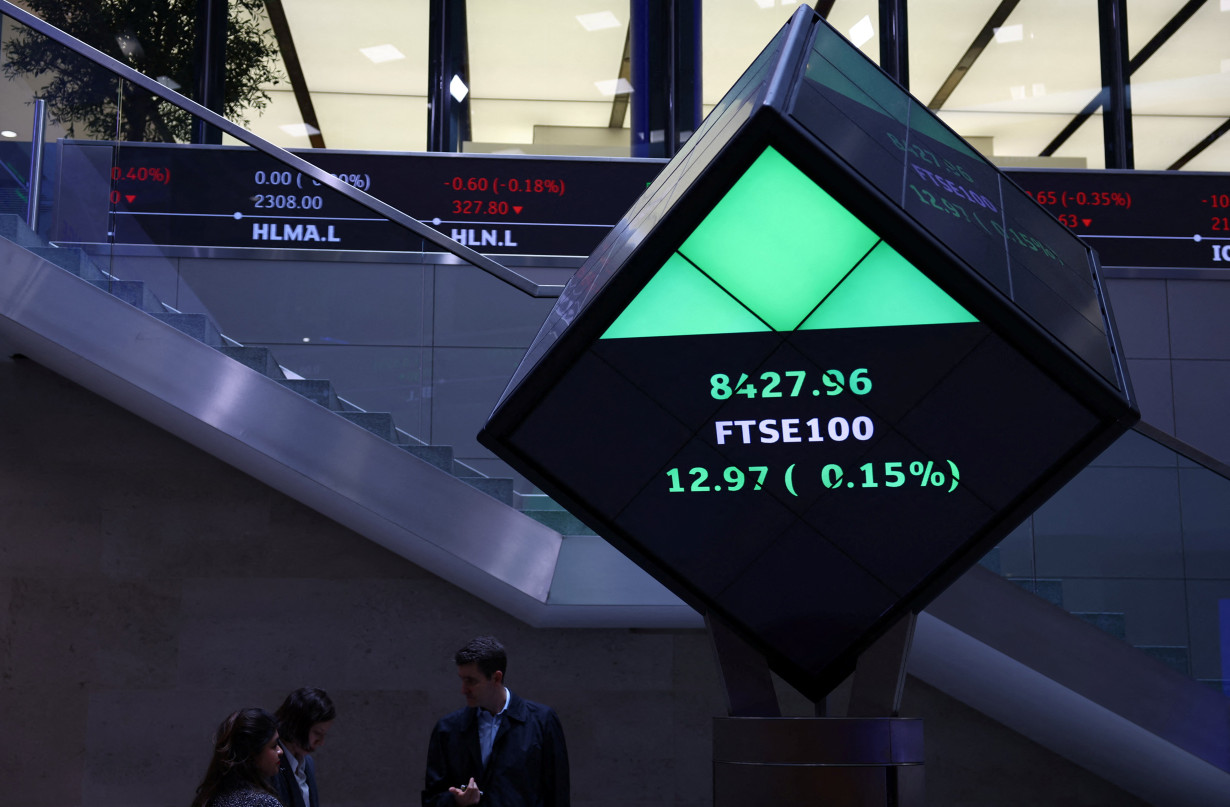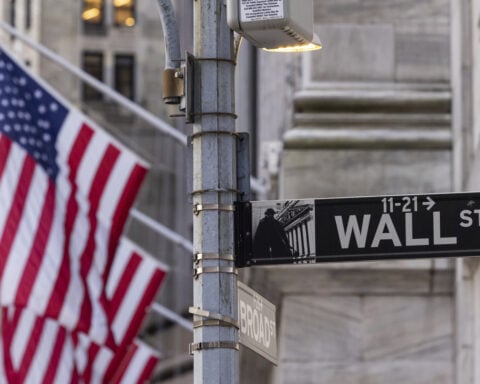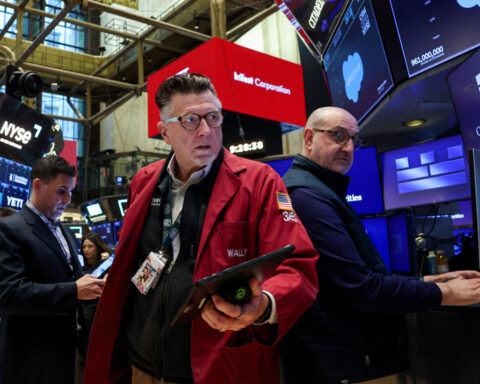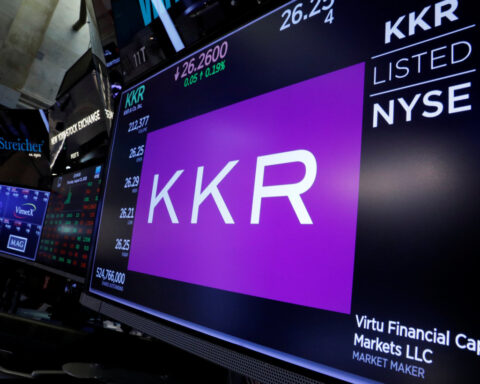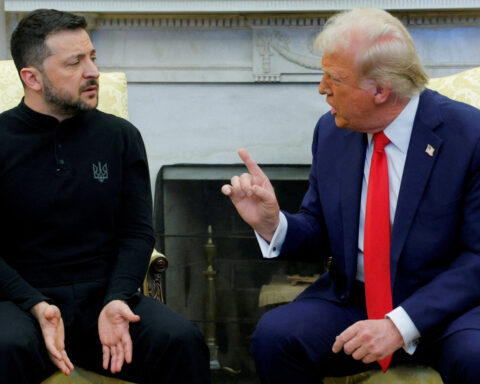(Reuters) -UK shares edged lower on Friday as investors avoided big bets on concerns over the global economic fallout exacerbating trade tensions already heightened by tariffs.
The blue-chip FTSE 100 was flat, but closed the week 0.2% higher, the second straight week of gains.
The midcap FTSE 250 index was down 0.3%, but ended flat for the week after sixth straight weeks of losses.
Further hitting sentiment, the closely watched U.S. Personal Consumption Expenditures price index rose by the most in 13 months, fuelling concerns that U.S. President Donald Trump's tariff policies would further stoke inflation.
The focus is now on fresh tariffs the U.S. is due to announce on April 2. Trump indicated the measures may not be the like-for-like levies he has been pledging to impose.
Aerospace and defence stocks were among the top sectoral decliners, down 2.5%.
Rolls Royce, BAE Systems and Melrose Industries were the top decliners on the FTSE 100, falling between 1.3% and 4.6%.
Industrial metal miners fell 2.2% as copper prices fell on muted risk appetite ahead of next week's deadline for broad U.S. reciprocal tariffs. [MET/L]
Among individual stocks, WH Smith slipped 4.7% after the retailer agreed to sell its UK high street business to Modella Capital for 76 million pounds ($98 million).
On the flip side, SSE rose 3.8% after the power generator and network operator named company veteran Martin Pibworth as its chief executive.
On the data front, the Office for National Statistics showed that British retail sales unexpectedly rose in February, defying most forecasts from analysts who had predicted a fall against a backdrop of weak overall growth in the economy.
While the sales remain below pre-pandemic levels, the unexpected uptick provides a welcome boost for Finance Minister Rachel Reeves, whose ambitions to kick-start the economy have been dogged by weak growth data since taking office last July.
(Reporting by Ragini Mathur and Sanchayaita Roy in Bengaluru; Editing by Krishna Chandra Eluri and Ros Russell)

 Trump has begun another trade war. Here's a timeline of how we got here
Trump has begun another trade war. Here's a timeline of how we got here
 Canada's leader laments lost friendship with US in town that sheltered stranded Americans after 9/11
Canada's leader laments lost friendship with US in town that sheltered stranded Americans after 9/11
 Chinese EV giant BYD's fourth-quarter profit leaps 73%
Chinese EV giant BYD's fourth-quarter profit leaps 73%
 You're an American in another land? Prepare to talk about the why and how of Trump 2.0
You're an American in another land? Prepare to talk about the why and how of Trump 2.0
 Chalk talk: Star power, top teams and No. 5 seeds headline the women's March Madness Sweet 16
Chalk talk: Star power, top teams and No. 5 seeds headline the women's March Madness Sweet 16
 Purdue returns to Sweet 16 with 76-62 win over McNeese in March Madness
Purdue returns to Sweet 16 with 76-62 win over McNeese in March Madness
